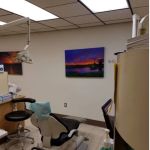- 1-Understanding-Jaw-Clicking-and-Tooth-Pain
- 2-Common-Causes-of-Jaw-Clicking
- 3-Reasons-for-Tooth-Pain-Associated-with-Jaw-Issues
- 4-How-TMJ-Disorders-Link-Jaw-Clicking-and-Tooth-Pain
- 5-Diagnosing-the-Root-Causes-Effectively
- 6-Treatment-Options-for-Jaw-Clicking-and-Tooth-Pain
1. Understanding Jaw Clicking and Tooth Pain
Jaw clicking accompanied by tooth pain can be alarming and uncomfortable. These symptoms often indicate underlying issues related to the temporomandibular joint (TMJ), dental problems, or muscular strain. The temporomandibular joint connects the jawbone to the skull, enabling complex movements like chewing and speaking. When this joint or surrounding structures experience dysfunction, patients may hear clicking or popping sounds, often paired with varying degrees of pain.
Understanding the causes of jaw clicking and tooth pain is vital for timely intervention and effective relief. Often, these symptoms signal a broader problem requiring professional evaluation to prevent further complications. Awareness of the possible triggers helps patients communicate effectively with dental or medical providers and seek appropriate treatment.
2. Common Causes of Jaw Clicking
Jaw clicking can result from multiple factors, many linked to issues within the TMJ or the muscles controlling jaw movement. A frequent cause is displacement or dysfunction of the articular disc within the joint, which can create clicking noises during jaw opening or closing. Other causes include arthritis, jaw injury, or habitual behaviors such as teeth grinding (bruxism) and excessive gum chewing.
For example, repetitive stress on the jaw can inflame muscles and ligaments, disrupting smooth joint motion and causing audible clicks. Age-related wear and tear can also degrade joint surfaces, contributing to symptoms. While jaw clicking alone may not always be painful, it can precede or accompany more severe dysfunction if left untreated.
3. Reasons for Tooth Pain Associated with Jaw Issues
Tooth pain linked with jaw clicking often stems from referred pain, where discomfort originating in the jaw joint or muscles is perceived in the teeth. TMJ disorders can cause muscle tension that radiates to the teeth and face, producing sharp or dull toothache sensations without dental decay or cavities.
In some cases, bite misalignment or uneven pressure on teeth caused by jaw dysfunction can damage dental structures, increasing sensitivity or pain. Additionally, conditions like sinus infections or nerve irritation may mimic tooth pain but relate indirectly to jaw problems.
4. How TMJ Disorders Link Jaw Clicking and Tooth Pain
TMJ disorders represent a common connection between jaw clicking and tooth pain. These disorders encompass a range of problems affecting the joint, muscles, and surrounding tissues. Symptoms typically include clicking, popping, limited jaw movement, headaches, and tooth discomfort.
TMJ disorders can arise from trauma, arthritis, stress-induced muscle tension, or dental malocclusion. For example, a patient experiencing chronic jaw tension due to stress might develop both persistent jaw clicking and tooth sensitivity. The interplay between joint inflammation and muscular strain explains why these symptoms frequently co-occur.
5. Diagnosing the Root Causes Effectively
Accurate diagnosis of the causes of jaw clicking and tooth pain is essential to guide treatment. Dentists and specialists use clinical examination, patient history, and imaging techniques such as X-rays, MRI, or CT scans to evaluate the TMJ and dental structures.
During examination, providers assess jaw movement, listen for joint sounds, and check for muscle tenderness. Detailed questioning helps distinguish between dental origin pain and TMJ-related discomfort. This comprehensive approach prevents misdiagnosis and ensures personalized treatment plans.
6. Treatment Options for Jaw Clicking and Tooth Pain
Treatment depends on the underlying cause but often begins conservatively. Physical therapy focusing on jaw exercises, stress management techniques, and anti-inflammatory medications help relieve symptoms. Night guards or splints can protect teeth from grinding and reduce joint strain.
In more severe cases, dental corrections such as bite adjustment or orthodontics might be necessary. Surgical interventions are rare and reserved for structural joint damage. Patients frequently benefit from multidisciplinary care, combining dental, medical, and physical therapy expertise for optimal outcomes.
If you experience persistent jaw clicking and tooth pain, visiting a specialist at Dentistry Toothtruth can provide targeted evaluation and effective treatment tailored to your needs.







 Dr. Deeptha Surampudi, Crescent Family Dental0.0 (0 review)
Dr. Deeptha Surampudi, Crescent Family Dental0.0 (0 review) Great Smiles Dental Care4.0 (472 review)
Great Smiles Dental Care4.0 (472 review) Emergency Dentist 24/7 Downingtown1.0 (1 review)
Emergency Dentist 24/7 Downingtown1.0 (1 review) Waukegan Dental Wellness0.0 (0 review)
Waukegan Dental Wellness0.0 (0 review) Sunbrite Dental4.0 (1409 review)
Sunbrite Dental4.0 (1409 review) Dental Faculty Practice3.0 (37 review)
Dental Faculty Practice3.0 (37 review) The Importance of Oral Health Education During Pregnancy for a Healthy Pregnancy
The Importance of Oral Health Education During Pregnancy for a Healthy Pregnancy Best Tips for Brushing Your Teeth Properly for Healthy Gums: Essential Techniques for Oral Health
Best Tips for Brushing Your Teeth Properly for Healthy Gums: Essential Techniques for Oral Health Why Skipping Dental Checkups Can Lead to Bigger Oral Health Problems
Why Skipping Dental Checkups Can Lead to Bigger Oral Health Problems Advantages of Porcelain Dental Restorations
Advantages of Porcelain Dental Restorations How Can Diabetes Cause Tooth and Gum Problems? Preventing and Managing Oral Health Issues
How Can Diabetes Cause Tooth and Gum Problems? Preventing and Managing Oral Health Issues Healthy Habits for Promoting Good Oral Health and Hygiene: Tips for a Healthy Smile
Healthy Habits for Promoting Good Oral Health and Hygiene: Tips for a Healthy Smile